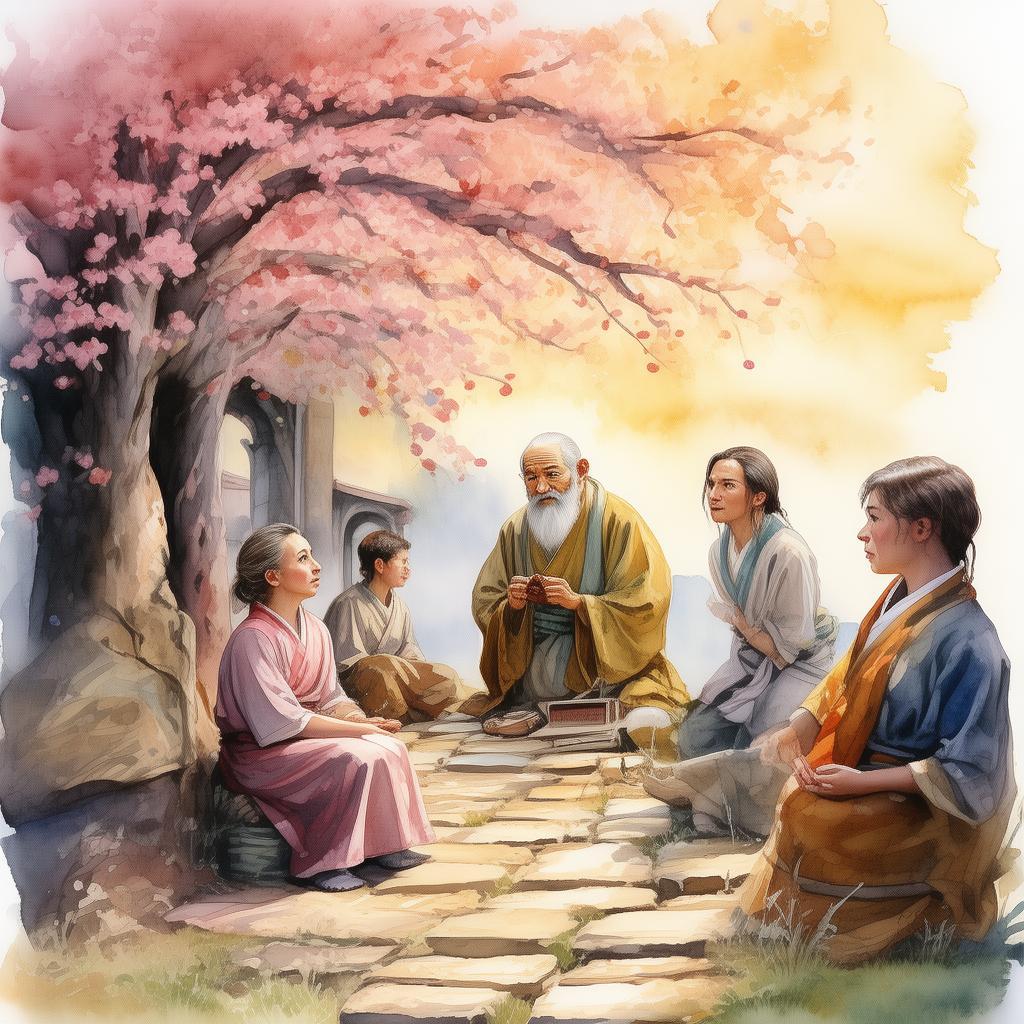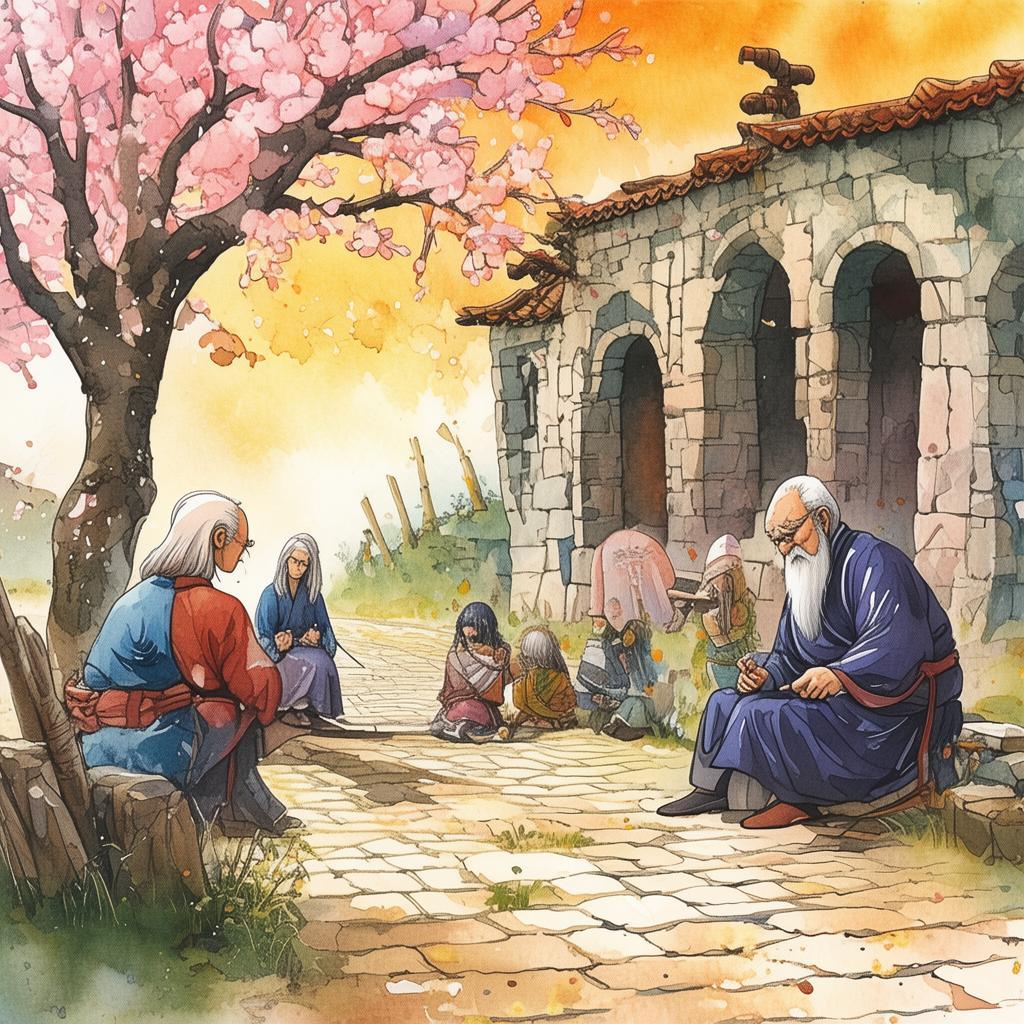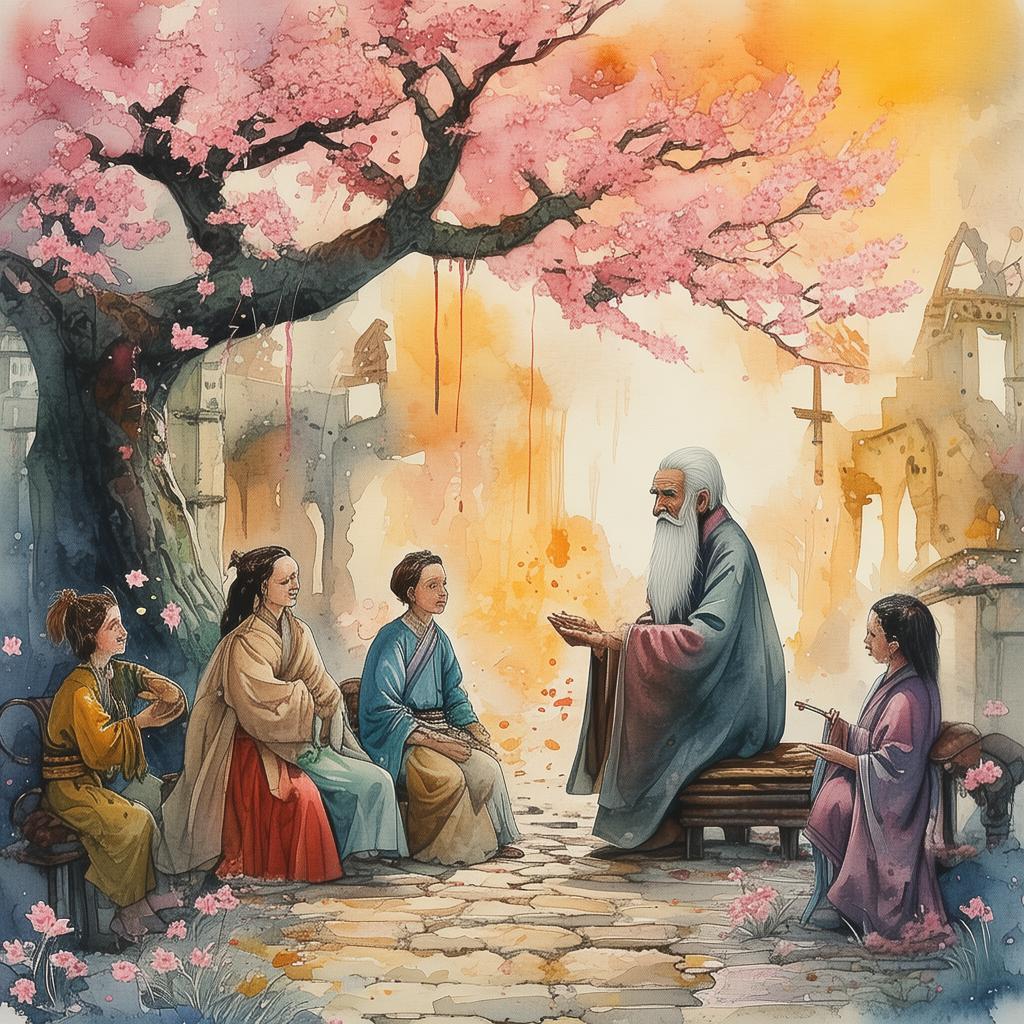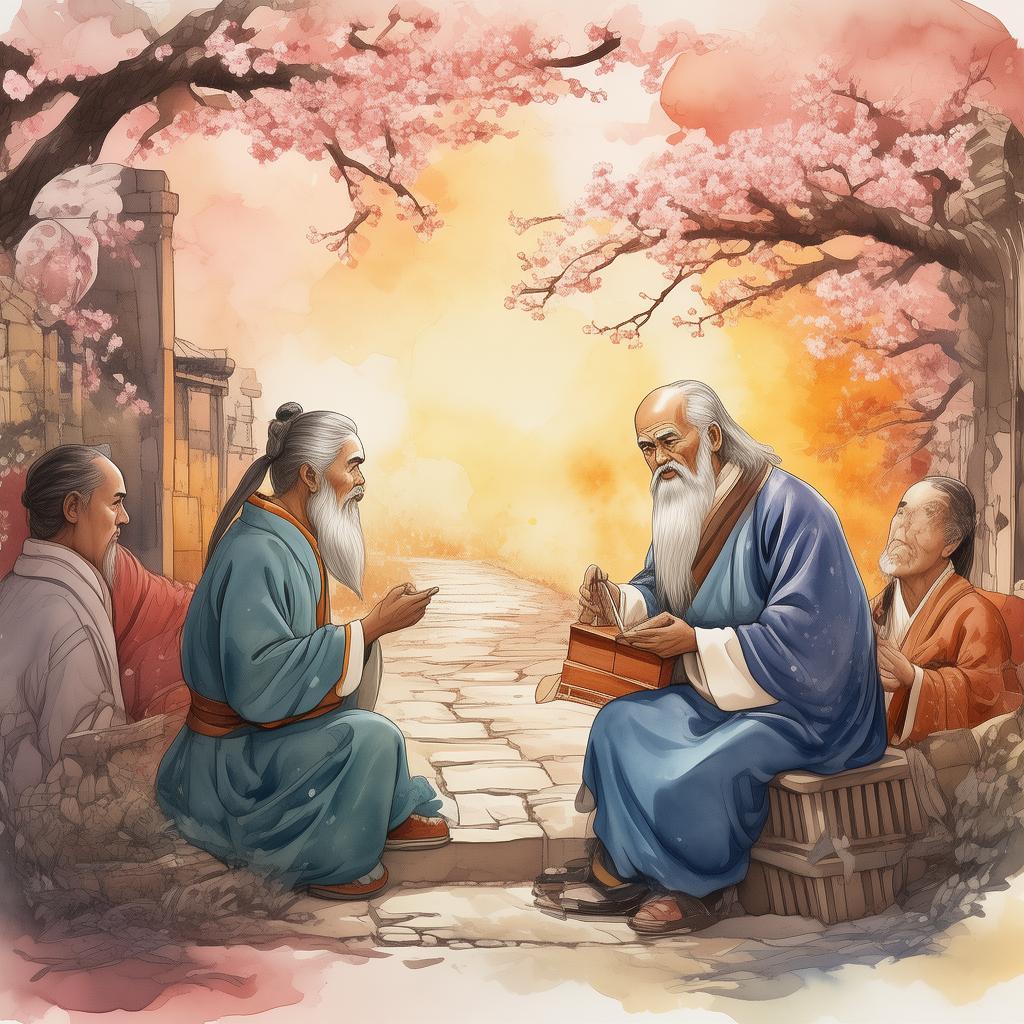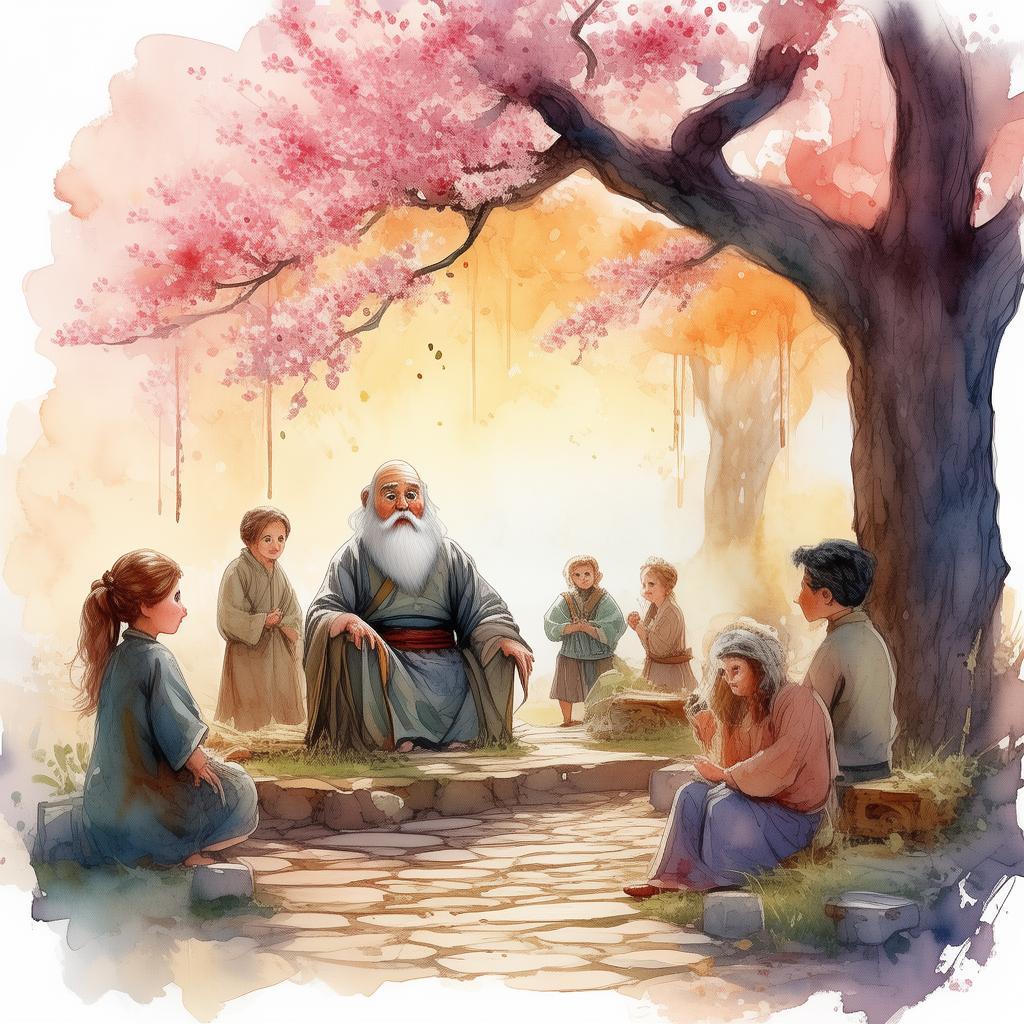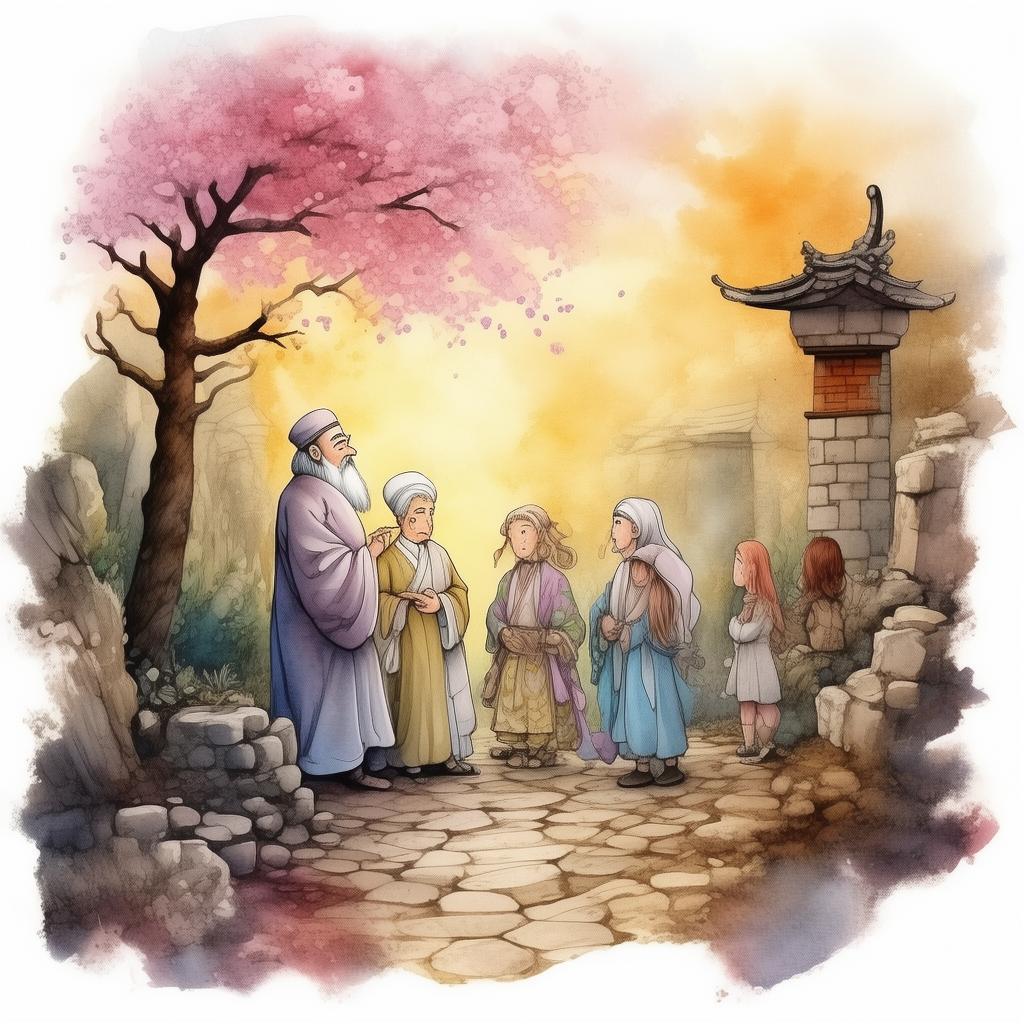The Melody of Redemption: The Symphony of the Phantom's Mountains
In the remote reaches of the Great Wall of China, there lies a range of mountains known as the Phantom's Mountains. They were said to be cursed, their peaks etched with the sorrow of a long-forgotten love story. The land was barren, and the wind howled through the valleys like a ghostly lament. Yet, there was a whisper of hope in the form of a young composer named Ling, whose heart was as vast as the mountains themselves.
Ling had grown up in a small village nestled at the base of the Phantom's Mountains. She had always been fascinated by the legends that surrounded the peaks, and she believed that music could mend the rift between the land and its inhabitants. It was this belief that led her to compose a symphony, one that she hoped would resonate with the mountains and bring them back to life.
The symphony was titled "The Phantom's Symphony: Music That Molds Mountains." It was a work of both passion and perseverance, for Ling spent years crafting each note, ensuring that the music was a true reflection of the mountains' soul. The first movement was a somber elegy, a dirge for the lost love that had once been the mountains' glory. The second movement was a dance of despair, mirroring the barrenness of the land. But it was the third movement that was the most profound, a symphony of hope and renewal, where the mountains began to stir, as if the music was a life-giving force.

One evening, as Ling played the symphony for the first time, she felt the earth tremble beneath her. The mountains seemed to respond to the music, their peaks whispering secrets to the wind. The barren land began to flourish, flowers blooming where once there had been nothing but dust and stones. The villagers, who had long feared the mountains, began to approach them, drawn by the symphony's healing power.
As the music reached its climax, the Phantom's Mountains underwent a remarkable transformation. The peaks, which had been eroded by time and sorrow, began to rise and reshape themselves. The valleys filled with water, creating a network of streams and rivers that would nourish the land. The trees and grasses grew lush and green, and the animals returned to their ancient home.
Ling, who had once been a young girl with a dream, now stood before a landscape that was reborn. The villagers, who had once lived in fear, now lived in awe. They had seen the power of music, not just to entertain, but to transform the very essence of the world around them.
As the first rays of the morning sun kissed the newly formed landscape, Ling looked upon the Phantom's Mountains and knew that her symphony had achieved its purpose. The mountains had been molded not by hands, but by the melodies of her soul. And in this act of creation, she had found her own redemption.
One of the villagers, an old man who had known the mountains since he was a child, approached Ling with a mixture of reverence and gratitude. "This is the music that molds mountains," he said, his voice filled with emotion. "You have brought us back to life."
Ling smiled, her eyes glistening with tears. "I only did what I could," she replied. "Music is a gift, one that can heal the deepest wounds."
And so, the Phantom's Mountains became a testament to the power of music, a living example of the Chinese idiom "The music that molds mountains." And Ling, the young composer whose symphony had changed the world, had found her place among the peaks, forever a guardian of the Phantom's Symphony.
The story of Ling and her symphony spread far and wide, inspiring people to look beyond the surface of their world and see the possibilities of transformation. The Phantom's Symphony: Music That Molds Mountains became a legend, a tale of hope and the enduring power of human spirit.
✨ Original Statement ✨
All articles published on this website (including but not limited to text, images, videos, and other content) are original or authorized for reposting and are protected by relevant laws. Without the explicit written permission of this website, no individual or organization may copy, modify, repost, or use the content for commercial purposes.
If you need to quote or cooperate, please contact this site for authorization. We reserve the right to pursue legal responsibility for any unauthorized use.
Hereby declared.



